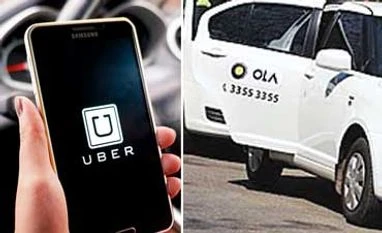Maharashtra government has relaxed many existing laws and allowed kali pilee (black and yellow) taxis and radio cabs to join aggregator platforms.
The move comes even as the draft Maharashtra City Taxi Rules, 2016, proposes to regulate the licensing of app-based taxi aggregators.
A senior officer, who was engaged in drafting these rules, told Business Standard: "Any black and yellow taxi will be freely allowed to get attached to any licensee under these rules by informing the concerned regional transport authority and by affixing such roof light on the vehicle as may be specified by the latter. Further, a black and yellow taxi which is deemed to be operating under these rules will be allowed to revert to operate under the original permit as regular hail-taxi by intimating (the same to) the concerned authority. the permit and the vehicle attached to any licensee under these rules will be freely allowed to be transferred to any other licensee but only after at least one month of operation attached to the earlier licensee has elapsed." The official also noted that the objective of these rules was to provide a level playing field to all operators and protect the interest of commuters.
Fares will be capped
Further, the rules envisage that the licensing authority will prescribe minimum and maximum limits for the fare-rates with respect to vehicles operating under permits granted. These rates will be decided according to the type of vehicle, provided that no such limits might be prescribed for vehicles with engine capacity of 2000cc or more.
Clean fuel key
More From This Section
The official said that the rules give due importance to environment protection. "Any vehicle operating under these rules will have to be driven on clean fuel, including unleaded petrol, CNG, LPG, and hybrid or electrical and they should meet emission standards," the official explained.
Emergency button
Emergency button
The licensee will also have to develop and include a feature on its mobile application that provides passengers with a facility to share their real-time location with up to five people within their safety network and to contact the local police in case of an emergency.
Existing players not happy
Existing players not happy
Existing aggregators may not be too happy with the new draft rules. Uber’s head of public policy in India reportedly sent a letter to Maharashtra Chief Minister Devendra Fadnavis, where he said the draft rules were likely to make the company's operations in the state “expensive and unreliable”. The grievances relate to the proposed restrictions on engine capacity, price tags for permits, and pricing
“The rules suggest that ride-sharing apps should ensure half the fleet of cars on the platform are over 1,400cc engine capacity. This push towards more premium cars will mean more economical and fuel-efficient ones will be pushed out from the platform. It will also take away the freedom and flexibility of drivers to have the vehicle of their choice, forcing them to buy more expensive cars, which will in turn push up fares,"said the letter.
"Price tags for permits, which can go up to Rs 2.61 lakh, are too steep, and "the requirement for Uber to deposit Rs 50 lakh per 1,000 vehicles will make the business unviable,"added Uber.
)